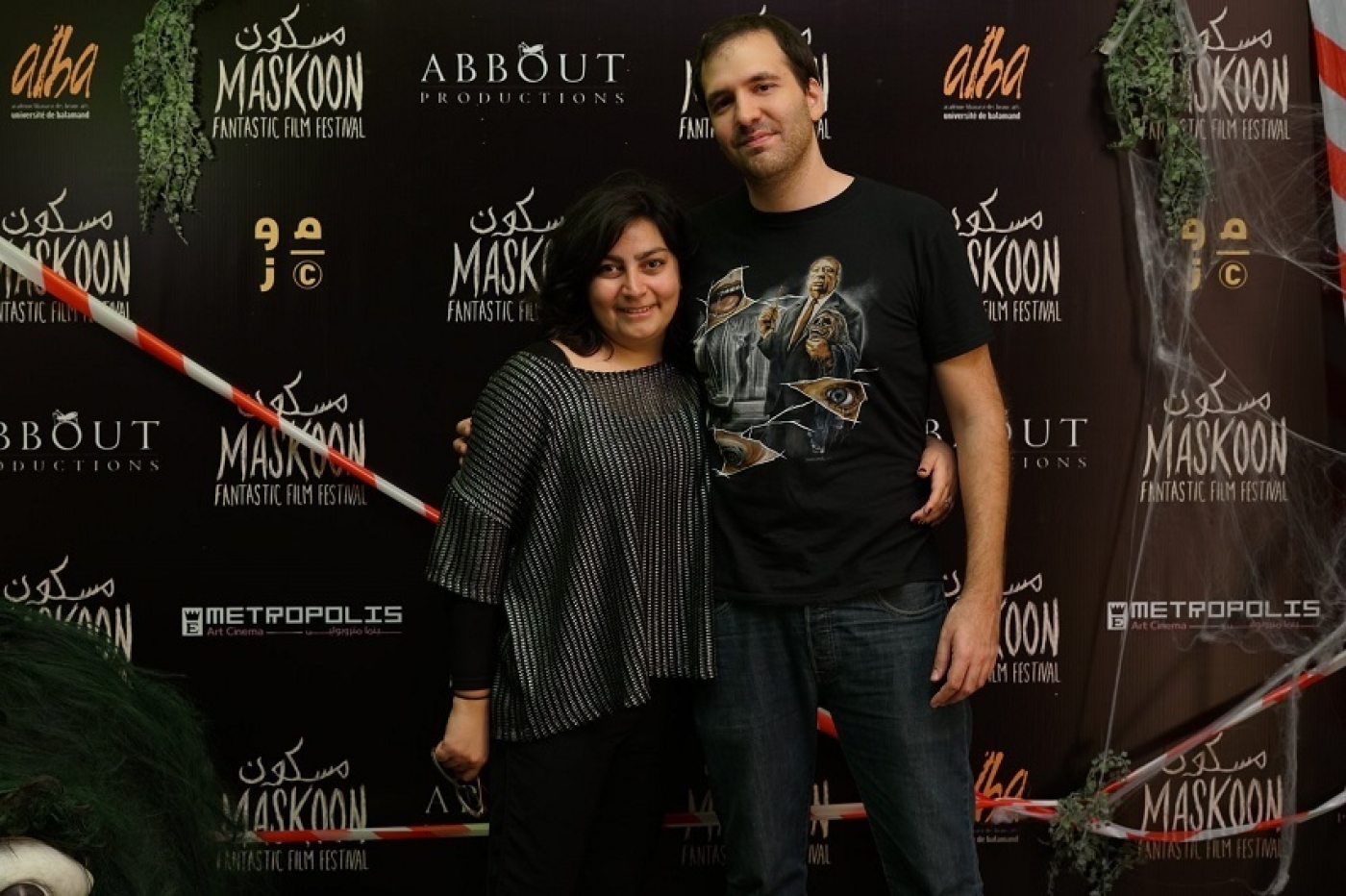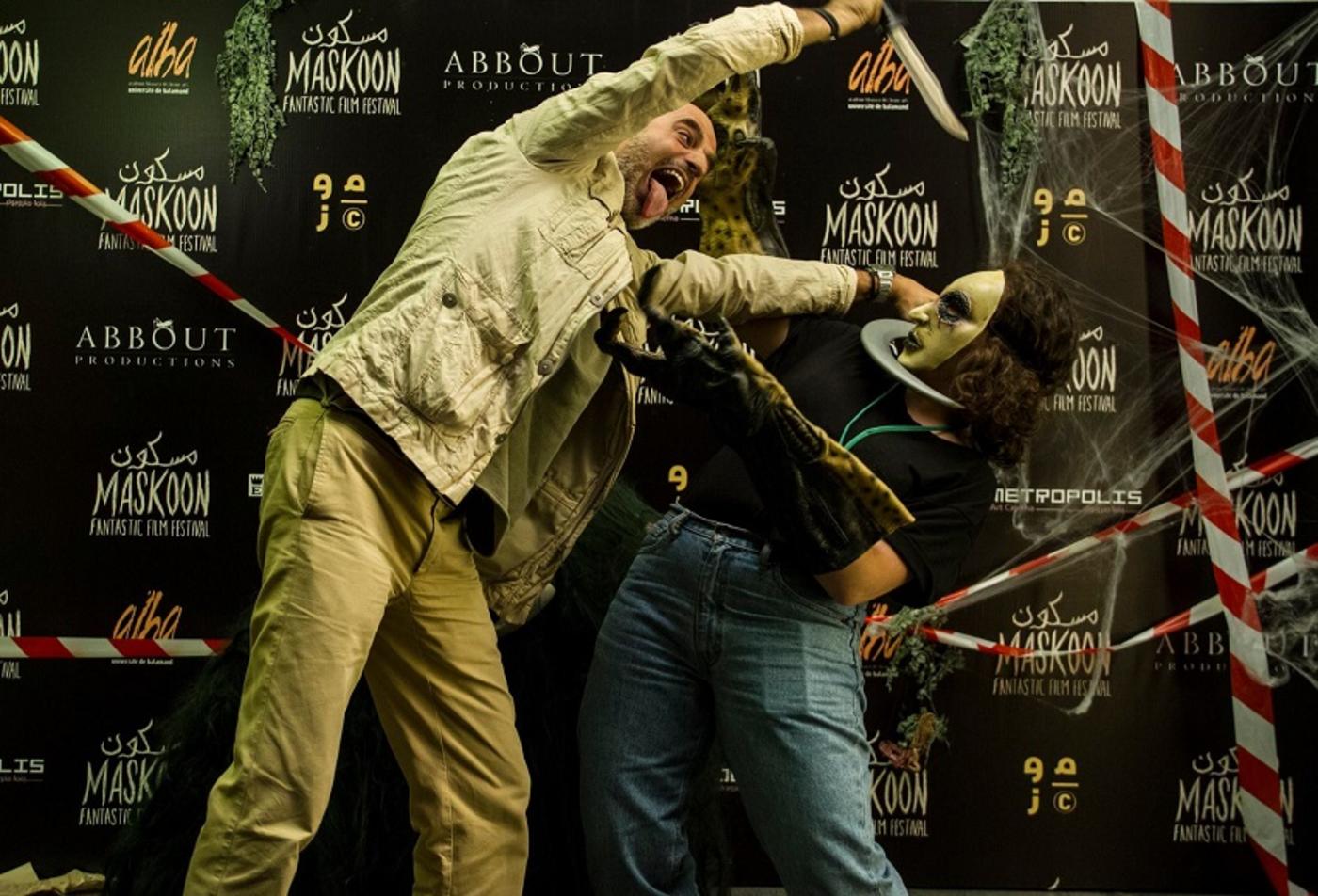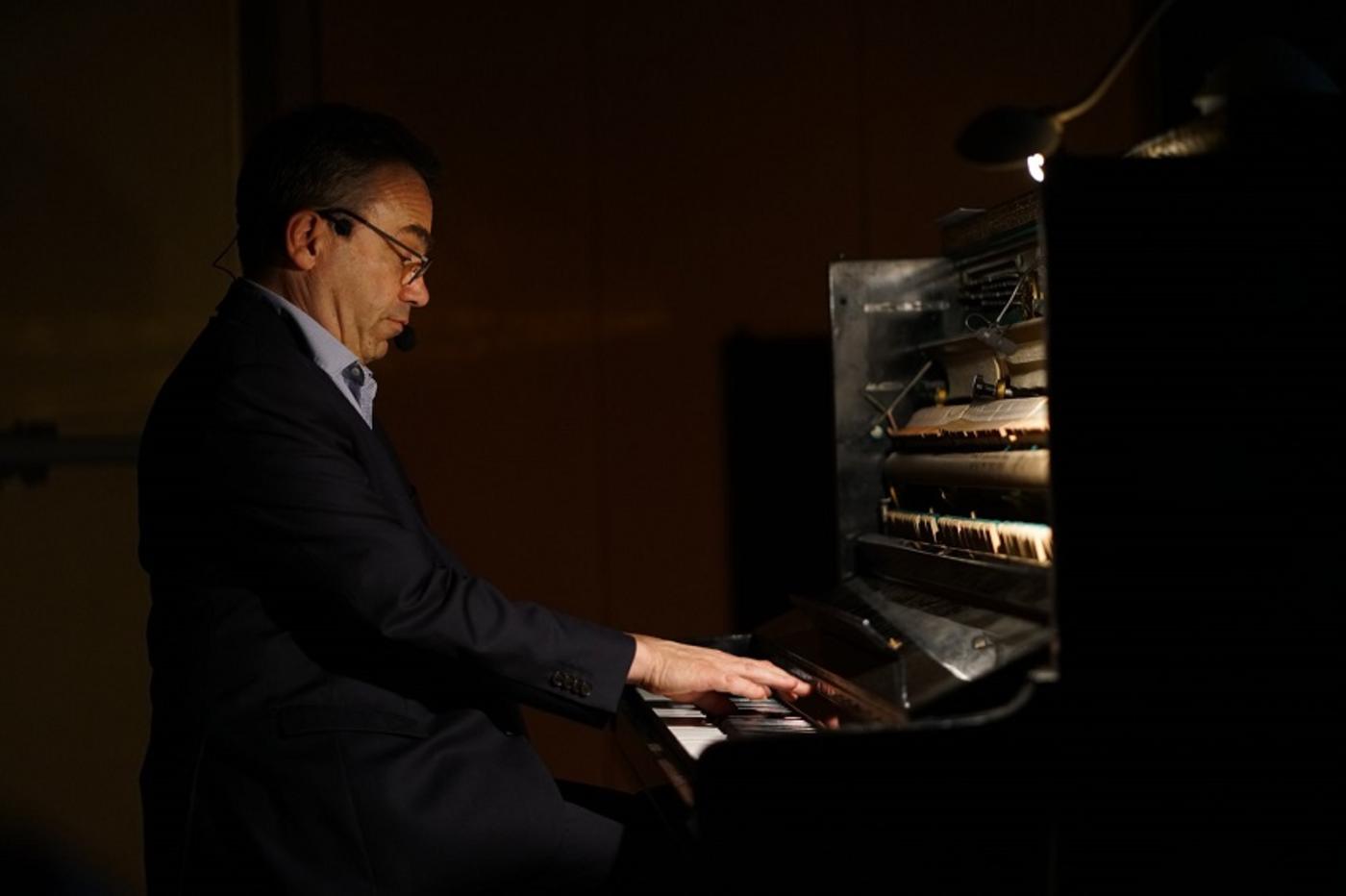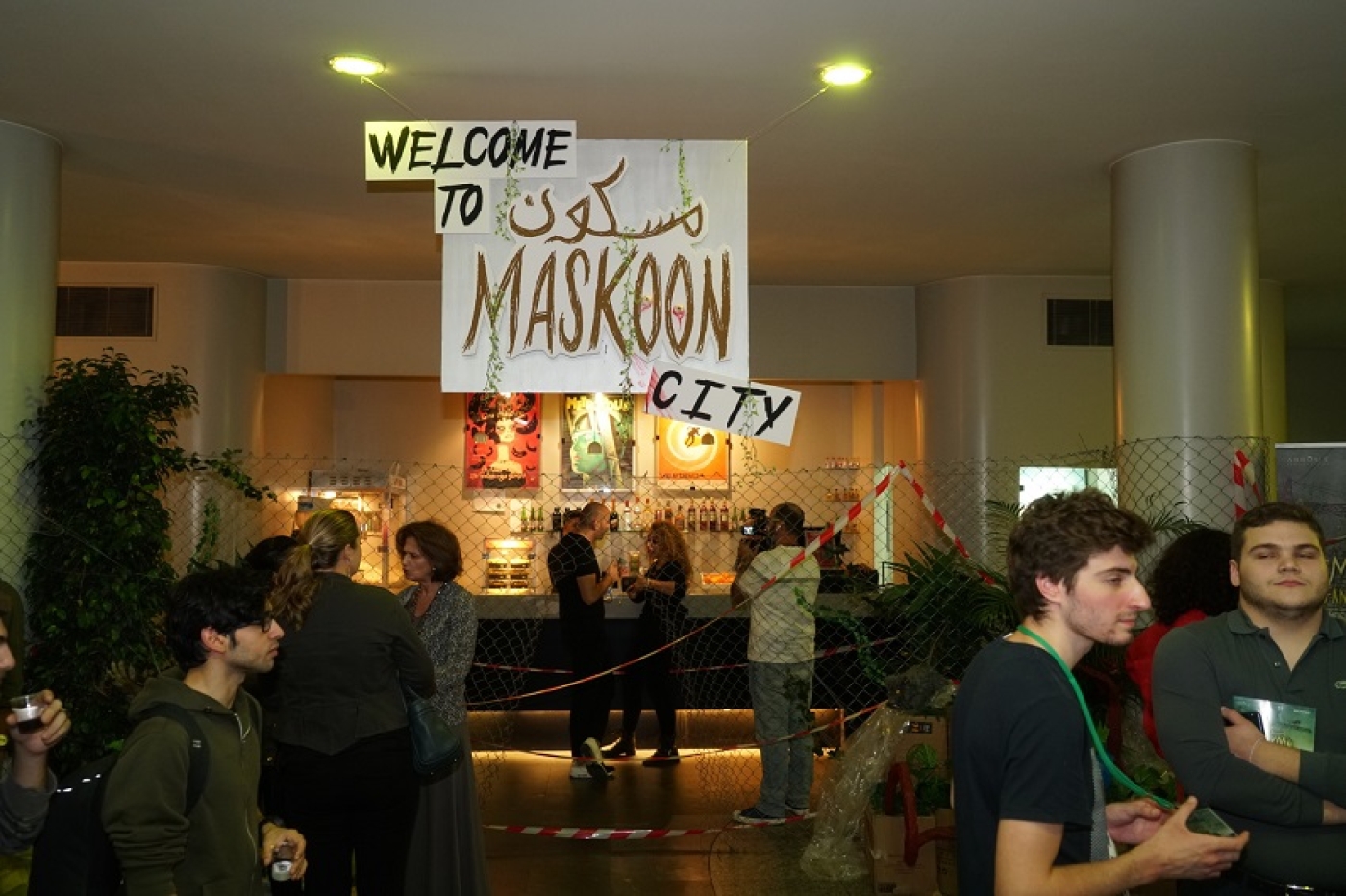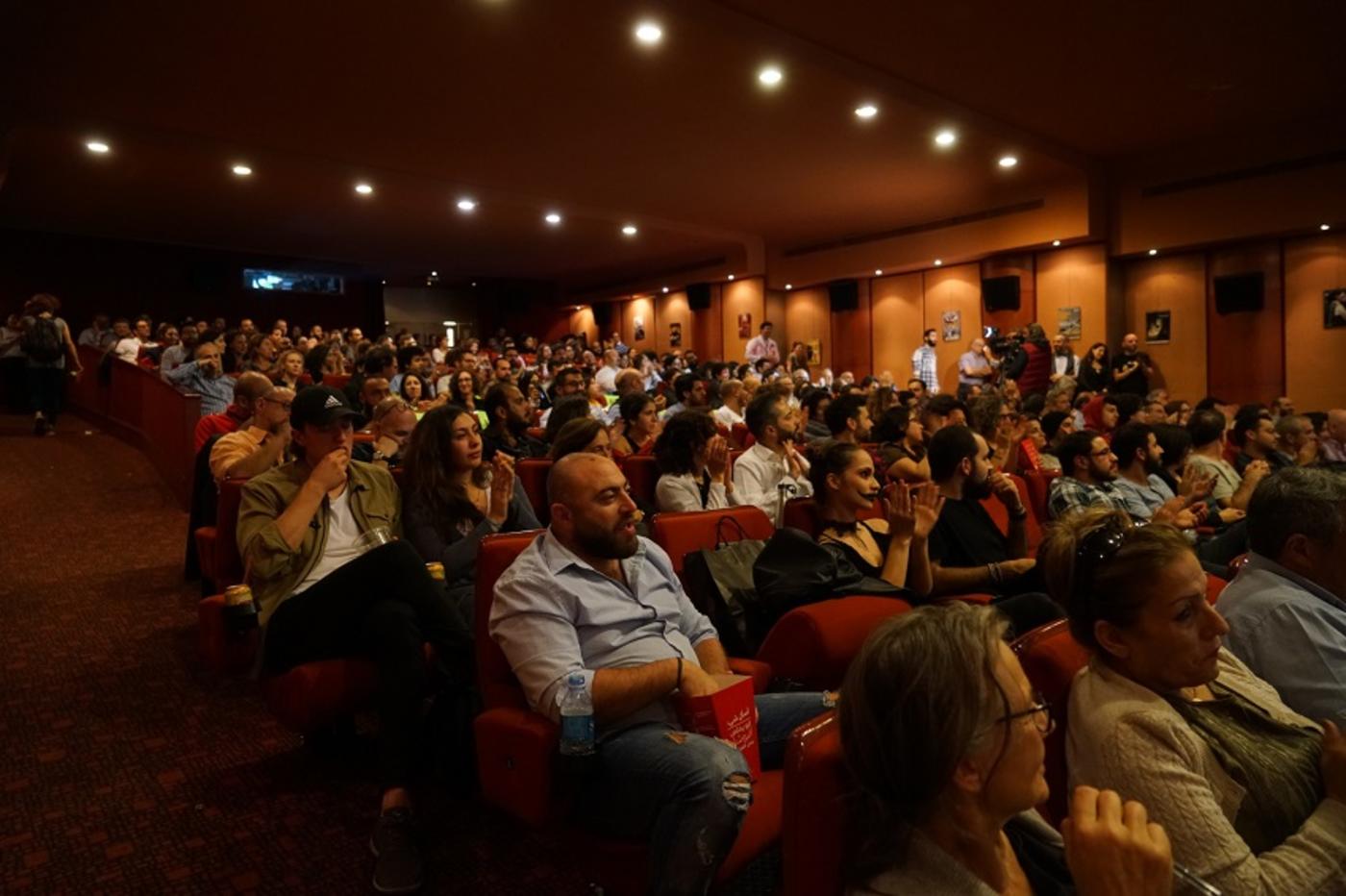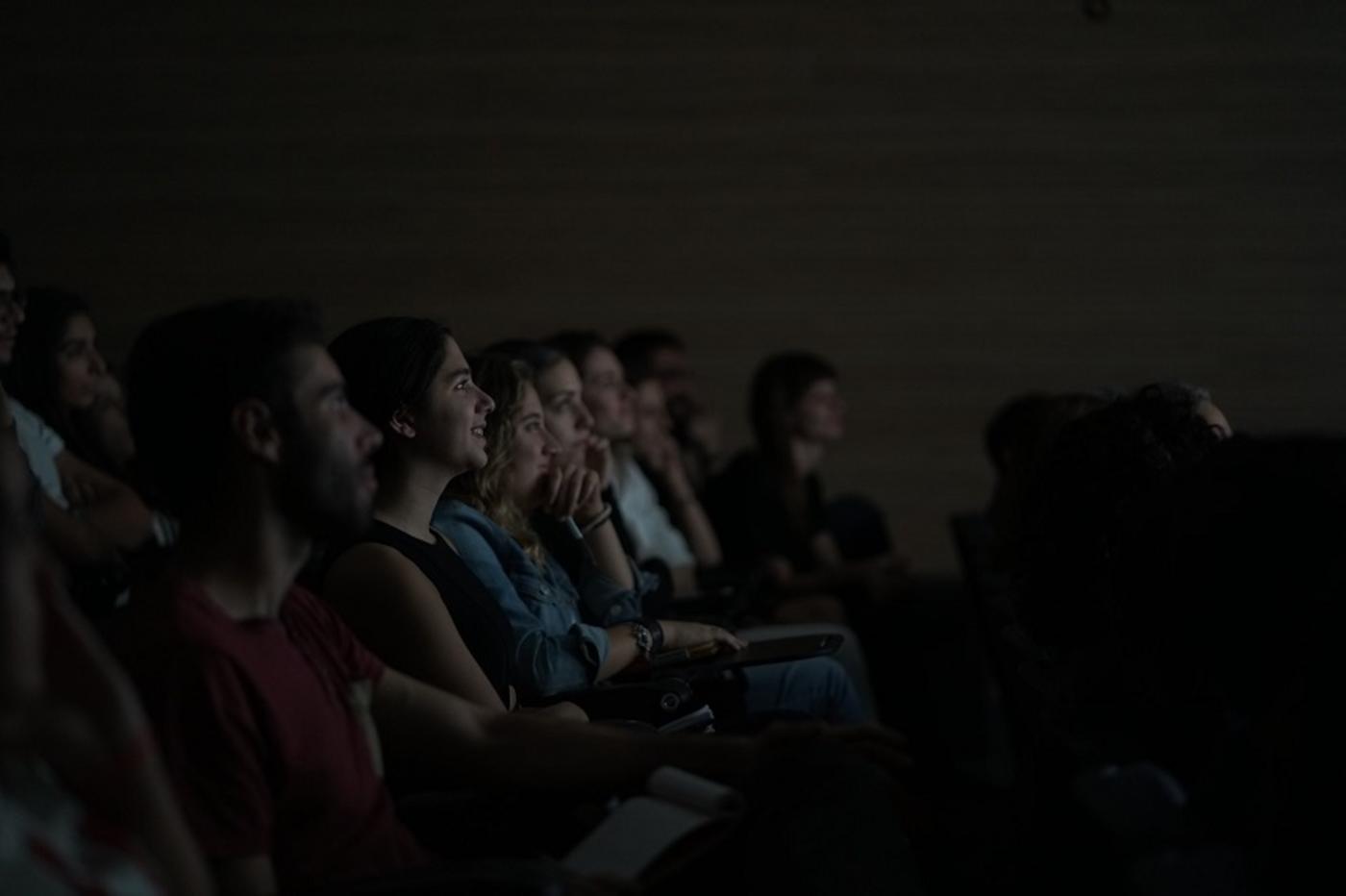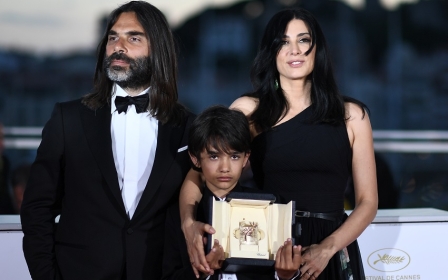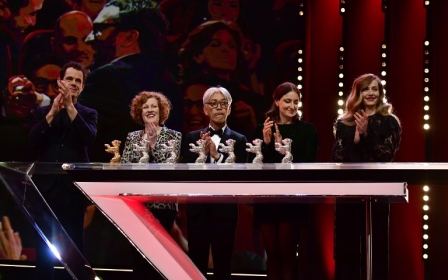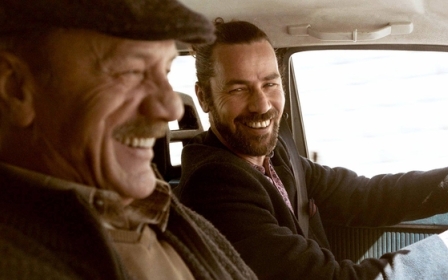Horror in Beirut: Maskoon film festival triumphs against the odds
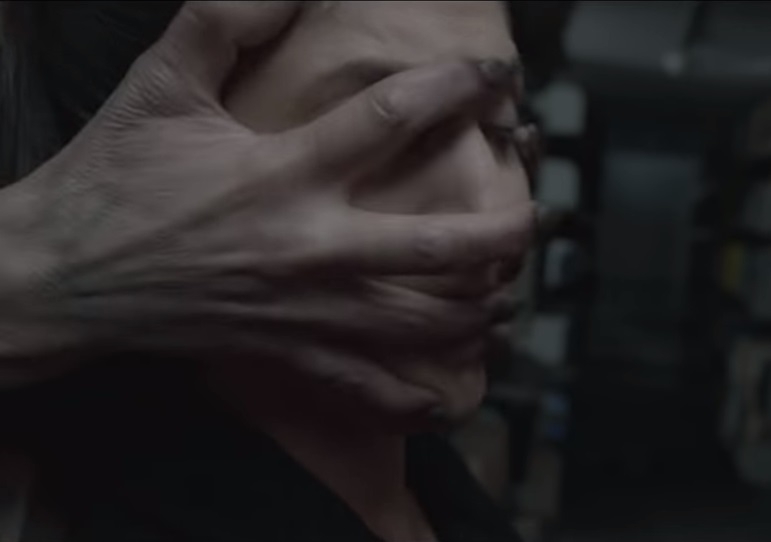
BEIRUT - It seemed like an unintentional glitch in an otherwise ambitious and original festival of horror and fantasy films taking place in Beirut.
Abdelhamid Bouchnak, the Tunisian director of the newly released horror film Dachra, asked to speak in French during the post-screening public discussion of Beirut's third Maskoon Fantastic Film Festival.
The moderator failed to ask if any members of the audience needed translation into Arabic or English.
For a non-French speaking audience, the situation felt uncomfortable and awkward. After the end of the Q&A, Middle East Eye received an unexpected response from the moderator after expressing some concern over the issue. "Well," he said, "this is a Francophone country after all."
This minor mishap was promptly corrected the next day and would not be repeated throughout the remainder of the festival. As trivial as it may seem, the harmless slip-up speaks volumes about the highly segregated film culture of Lebanon, one where the possibility of a popular, inclusive film fair remains elusive.
New MEE newsletter: Jerusalem Dispatch
Sign up to get the latest insights and analysis on Israel-Palestine, alongside Turkey Unpacked and other MEE newsletters
Maskoon, meaning haunted in Arabic - which ran from 31 October to 4 November - is the region's first film festival for fantasy, horror and thrillers.
An ambitious oasis
Founded by the producer, Myriam Sassine, and script supervisor Antoine Waked - both from the leading Lebanese production house, Abbout Productions - Maskoon is a project born from the duo's passionate affection for the genres. It runs on a shoestring budget with no support whatsoever from the government.
Run entirely by a team of volunteers with day jobs, Maksoon has few, if loyal, sponsors and a small but dedicated audience. And yet, in terms of programming, Maskoon is one of the most exciting, ambitious film festivals in the Arab world. It is a little oasis flowing with daring ideas, challenging aesthetics and exhilarating entertainment.
Its high-profile fans include Karel Och, artistic director of the Czech Republic's Karlovy Vary Film Festival; Evrim Ersoy, creative director of Austin, Texas's Fantastic Festival; and Anais Emery, artistic director of Switzerland's Neuchatel International Fantastic Film Festival.
The type of films, discussions and activities offered by Maskoon marks it out from just about any other Arab film festival. Three radically diverse recent films presented in Maskoon this year shed light on the great potential of the horror genre in the region.
Bouchnak's aforementioned Dachra (2018), Tunisia's first horror film, delivers staunch criticism of religious traditions and witchcraft that remain rampant in North Africa. Employing familiar horror tropes such as teenagers lost in foreboding woods, it is a story about three journalism students investigating the case of a woman mutilated 25 years earlier.
In Fadi Baki's Lebanese short The Last Days of the Man of Tomorrow (2017), the story of an automaton gifted by France to Lebanon upon its independence steadily evolves into a metaphor for the rise and fall of Lebanon over the past 70 years. It takes audiences from the economic prosperity of the 1960s to the violence of the civil war in the 1970s and then today's sweeping decadence.
Algerian Damien Ounouri's medium-length Cannes contender Kindil El Bahr (2016), meanwhile, weaves a visceral denunciation of patriarchy and machismo through a fable-like chronicle of a young Algerian mother assaulted and murdered by a group of men at sea and her subsequent transformation into an avenging killer mermaid.
The film line-up also included Korean auteur Chang-dong Lee's Cannes sensation, Burning, a slow-building crime mystery that uses the story of the disappearance of a young woman to meditate on class and creative freedom in South Korea; Mexican Issa Lopez's Tigers Are Not Afraid, a hard-bitten survival tale about a group of children thrust into a cartel war that combines realism and fantasy; and Iranian Ali Abbasi's cross-over Swedish hit, Border, a supernatural horror whose central atypical romance between a customs officer and a mysterious traveller gives way to an allegory about refugees, the fear of the other, and mounting national boundaries.
Artistic freedom
The sole sore point for Maskoon this year was the banning of two films: French provocateur Gaspar Noe's hugely acclaimed Climax, and the young Lebanese filmmaker Laura El Alam's short, Nocturnal Deconstruction.
The first, a musical horror following a European dance rehearsal that descends into mayhem, was deemed objectionable by censors for its display of excessive drug consumption. And the second was disparaged for a brief scene of lesbian sex that contains no nudity.
This was, yet again, another glaring breach of artistic freedom committed by the government's censorship bureau, a branch affiliated with the General Security. It is becoming distinguished for its arbitrary decisions, especially when considering the leeway it has given to Hollywood blockbusters such as Bohemian Rhapsody, with its gay content, and A Star is Born, with its liberal exhibition of drug usage.
"This was completely random and crazy. How can you prevent an audience from seeing a movie at this day and age?" Sassine, who is also managing director of Maskoon, said. "The fans of Gaspar Noe will manage to see the film in any case. What does censoring a film fest benefit the government with?
"It brings them nothing but bad publicity. Censorship is getting worse."
Sassine said that the filmmaker El Alam was willing to cut the offending scene and that Sassine had communicated this to the censor, but they had banned it anyway. MEE could not independently verify this.
"Since the censorship is here to stay, at least there should be a way to talk to them and understand their rationale, to find a way around their objections. A straight blind ban is not helping anyone," she said.
A step forward
In addition to this impressive film selection, Maskoon organised a number of panels about the rise of genre filmmaking in the region and film preservation. These included a masterclass on Alfred Hitchcock by award-winning American documentarian, Alexandre O Philippe, known for 78/52 - an analysis of the iconic shower scene from Hitchcock's 1960s classic Psycho - which required 78 set-ups and 52 cuts.
There was also a terrific cine-concert by French director and film preservationist Serge Bromberg, which rounded what was Maskoon's best-attended edition to date.
The lack of adventurousness of Beirut audiences in embracing less high-profile films remains a stumbling block. The high turnout for Burning – a film that has created a huge buzz internationally – is contrasted by the modest attendance for Border, Tigers Are Not Afraid or the Iranian slasher comedy, Pig. "Between the debates and the high-profile films, I think this edition was a step forward for us. Attracting an audience remains the biggest challenge, but compared to last year, we had a bigger turnout," said Maskoon.
"The Lebanese audience wants to see the film they've already heard about. They have little penchant for discovery. They've become lazy. Having films from Cannes surely boosted the attendance this year," Sassine said.
She added that Lebanese audiences do not attend film festivals as much as they used to. "We've lost the viewers for some reason along the years."
Finance is also a main challenge, she said. "No matter how much we're growing, we're still not considered by big sponsors such as banks as a serious cultural event. We also haven't succeeded in securing long-term sponsorship deals.
"Every year, I have to assemble the finances from scratch. Every year I wonder if we're going to make the festival happen," she said.
The real barrier for Maskoon is the basic social structure of Beirut itself. Lebanon's premier art-house theatre and Maskoon's host, Metropolis, continues to attract the largely French-speaking bourgeois audience from the swanky Achrafieh neighbourhood, a predominantly Christian district in east Beirut.
Despite commendable efforts, be it in marketing or programming, to attract a larger and more diverse audience to Maskoon, the Metropolis audience remains largely unchanged.
The world of Metropolis is removed from the hippie, predominantly Arabic speaking Muslim western district of Hamra for instance; and the two have little to nothing in common with Beirut's southern Shia suburbs of Dahiyeh, which hardly has any art centres.
Lebanon's bloody 15-year civil war divided Beirut into the Christian east and the Muslim west. Nearly three decades after the end of the war, Beirut remains as culturally segregated as before. Denizens of each district seldom venture to the opposite side.
"Geographically, it's a challenge. I do know that the audience of [art centre] Dar El Nimer in Hamra attracts a very different audience from that of Metropolis, even though both practically show the same type of films," Sassine said.
However, Sassine believes that the audience for the festival is potentially much wider, including what she sees as a core group of young horror fans.
'Every year, I have to assemble the finances from scratch. Every year I wonder if we're going to make the festival happen'
- Myriam Sassine, co-founder Maskoon Fantastic Film Festival
She added that Maskoon should venture outside the theatre for certain events and try to reach other audiences in different places, citing the Beirut Art Film Festival - which takes place across different districts in Lebanon, in Tripoli, Bekaa, and the south of Lebanon - as a model to follow.
"We need to engage the audience more and we certainly have a lot of work to do in the upcoming years."
Sassine was also dispirited by the near-complete lack of support from the local film community, in contrast to enthusiasm from the media and international film community. "I understand that everyone is afraid to speak, that they fear being penalised when requesting shooting or exhibition permits for their projects.
"Still, it's very frustrating. It shows the true colours of Lebanon. It shows how individualistic all initiatives are.
"I reached out to deans of other films schools to have their students attend the debates [which were held at the Lebanese Academy of Fine Arts], yet they were very apathetic simply because they don't want their students to step foot in another film school. This is Lebanon."
Middle East Eye delivers independent and unrivalled coverage and analysis of the Middle East, North Africa and beyond. To learn more about republishing this content and the associated fees, please fill out this form. More about MEE can be found here.


